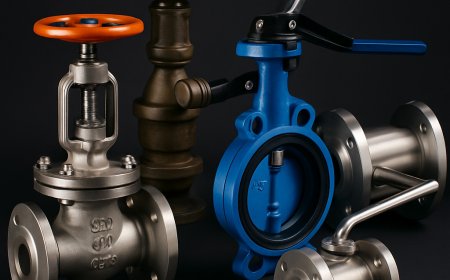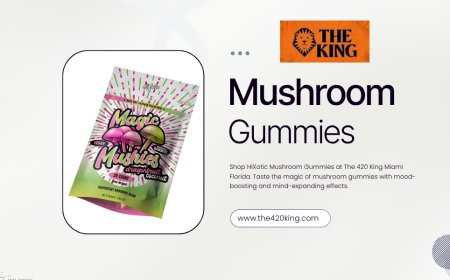Olive Oil Bulk Suppliers: Your Guide to Quality and Reliability
Find trusted olive oil bulk suppliers offering premium extra virgin, organic, and sustainable options for culinary, cosmetic, and pharmaceutical needs. Learn how to choose the best supplier.
Olive oil, extracted from the fruit of the Olea europaea tree, is a cornerstone of culinary, cosmetic, and pharmaceutical industries. Known for its rich flavor, health benefits, and versatility, olive oil is a top choice for businesses seeking high-quality ingredients. Sourcing from reputable olive oil bulk suppliers ensures consistent quality, cost savings, and a reliable supply chain. This blog explores the advantages of buying olive oil in bulk, key factors to consider when selecting a supplier, and answers to frequently asked questions to guide your procurement decisions.

Why Buy Olive Oil in Bulk?
Purchasing olive oil bulk manufacturers offers significant benefits for manufacturers, restaurants, retailers, and distributors. Here are some key advantages:
-
Cost Efficiency: Bulk purchasing lowers the cost per unit, improving profit margins or allowing competitive pricing for customers.
-
Consistent Supply: Reliable bulk suppliers ensure a steady flow of olive oil, preventing disruptions in high-demand operations.
-
Quality Assurance: Trusted suppliers provide certifications like organic, PDO (Protected Designation of Origin), or extra virgin status, meeting industry standards.
-
Versatility: Olive oil is used in cooking, skincare, haircare, and pharmaceuticals, making bulk sourcing ideal for diverse applications.
-
Sustainability: Ethical suppliers prioritize sustainable farming and eco-friendly production, aligning with consumer demand for responsible sourcing.
Whether youre crafting gourmet dishes, formulating cosmetics, or producing medicinal products, partnering with a dependable olive oil bulk suppliers enhances efficiency and product quality.
Key Considerations When Choosing an Olive Oil Bulk Supplier
Selecting the right supplier is critical to your businesss success. Here are essential factors to evaluate:
-
Quality and Certifications: Look for suppliers offering certified olive oil, such as extra virgin, organic, or PDO/PGI (Protected Geographical Indication). Ensure compliance with standards like IOC (International Olive Council) or USDA Organic.
-
Sourcing Transparency: Choose suppliers with clear traceability, providing details about olive origin, harvest methods, and production processes.
-
Product Range: Reliable suppliers offer various grades, including extra virgin, virgin, refined, or pomace olive oil, to suit specific needs.
-
Reliability and Scalability: Select a supplier with a proven track record of timely deliveries and the capacity to scale with your business growth.
-
Customer Support: Opt for suppliers with responsive support for addressing inquiries, technical questions, or shipping issues.
-
Pricing and Terms: Compare pricing, minimum order quantities (MOQs), and payment terms to align with your budget and operational requirements.
Focusing on these factors helps you build a long-term partnership with a supplier that supports your business goals.
Trends in the Olive Oil Industry
The olive oil market is evolving, driven by consumer preferences and industry innovations. Key trends include:
-
Demand for Premium Oils: Extra virginolive oil distributors are increasingly popular in culinary and cosmetic applications due to their health benefits and purity.
-
Sustainable Practices: Consumers favor suppliers using eco-friendly farming and production methods, such as organic cultivation and minimal waste.
-
Global Market Growth: Mediterranean countries like Spain, Italy, and Greece dominate production, but emerging regions like Australia and California are gaining traction.
-
Health-Conscious Consumers: Olive oils heart-healthy properties, rich in monounsaturated fats and antioxidants, drive demand in food and wellness sectors.
Partnering with a supplier aligned with these trends ensures your business remains competitive.
How to Find Olive Oil Bulk Suppliers
To locate trusted suppliers, explore online platforms like Alibaba, Hetaksh Essential Oils directories, which list verified suppliers. Attending industry trade shows or connecting with associations like the International Olive Council can also help. Always request samples, certifications, and references before committing to a supplier.
Conclusion
Choosing a reliable olive oil wholesale is a strategic decision that impacts your product quality, operational efficiency, and profitability. By prioritizing quality, transparency, and scalability, you can find a supplier that meets your needs, whether for culinary, cosmetic, or pharmaceutical applications. Start your search today to connect with trusted olive oil bulk suppliers and leverage the versatility of this timeless ingredient.
FAQs About Olive Oil Bulk Suppliers
1. What is olive oil used for?
Olive oil is used in cooking (e.g., salads, frying, baking), cosmetics (e.g., moisturizers, haircare), pharmaceuticals (e.g., as a carrier oil), and industrial applications (e.g., soaps, lubricants). Its versatility stems from its rich flavor and health benefits.
2. How can I ensure the quality of bulk olive oil?
Request certifications like USDA Organic, PDO, or IOC standards. Ask for Certificates of Analysis (CoA) to verify purity, acidity levels, and authenticity, especially for extra virgin olive oil.
3. What types of olive oil are available in bulk?
Common types include:
-
Extra Virgin Olive Oil: Highest quality, cold-pressed, ideal for culinary and cosmetic use.
-
Virgin Olive Oil: Slightly lower quality but still unrefined, suitable for cooking.
-
Refined Olive Oil: Processed for a neutral flavor, used in high-heat cooking or industrial applications.
-
Pomace Olive Oil: Extracted using solvents, often used in soaps or industrial products.
4. Is organic olive oil available in bulk?
Yes, many suppliers offer organic olive oil certified by bodies like USDA or EU Organic. Request documentation to confirm organic status.
5. What is the typical minimum order quantity (MOQ) for bulk olive oil?
MOQs vary, ranging from a few liters to metric tons. Discuss your needs with suppliers to find flexible terms.
6. How do I verify a suppliers reliability?
Check reviews, request references, and verify certifications. Platforms like Alibaba provide supplier ratings, and trade references can confirm reliability.
7. Is olive oil sustainable?
Olive oil can be sustainable when sourced from suppliers using eco-friendly farming practices, such as organic cultivation or water-efficient irrigation. Look for suppliers committed to sustainability.
8. How is olive oil shipped in bulk?
Olive oil is typically shipped in drums, IBC totes, or tankers. Ensure suppliers use food-grade packaging to prevent contamination and comply with international shipping standards.
9. Can I get customized olive oil blends?
Many suppliers offer tailored blends or specific grades for culinary, cosmetic, or pharmaceutical applications. Discuss your requirements with the supplier.
10. Where is most olive oil produced?
Spain, Italy, and Greece are the largest producers, accounting for over 70% of global supply. Other notable regions include Turkey, Tunisia, and emerging markets like Australia and the United States.





































